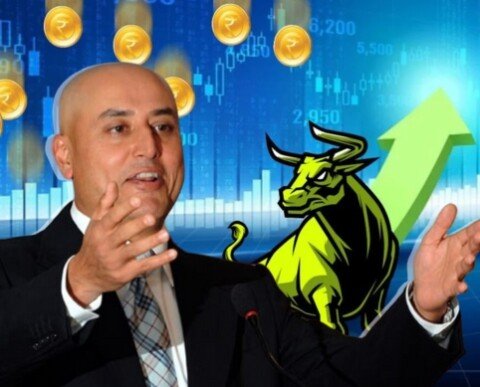India’s largest stock broking platform, Zerodha, reported a revenue of ₹8,320 crore and a profit of ₹4,700 crore, as stated by co-founder and CEO Nithin Kamath.
This marks a significant increase from the₹6,875 crore revenue and₹2,907 crore profit reported in FY23. In that year, Zerodha also experienced a 39 percent surge in net profit, up from ₹2,094 crore in FY22, while revenue grew by 35.5 percent from ₹4,694 crore in FY22.
‘Unrealized Gains, Risks Materializing’
The profits do not take into consideration approximately ₹1,000 crore in unrealized gains, which will be shown in our financial statements. Given our profitability over the last three years, our net worth is nearly 40 percent of the customer funds we manage, making us one of the safest brokers to trade with,” Kamath added.
“Many risks appear to be materializing simultaneously. We are already observing a plateau in revenue and profit, and we are preparing for a significant revenue drop later this year,” he noted.
‘Preparing for a Significant Revenue Drop’
Kamath outlined several factors that he anticipates will negatively affect Zerodha’s performance. These include:
- A projected 10 percent revenue decline following SEBI’s true-to-label circular, set to take effect on October 1, 2024.
- A consultation document on index derivatives was released by SEBI recently and is available for public feedback. We anticipate that sometime in the upcoming quarter, this paper will become a regulation. We now rely heavily on index derivatives for a large amount of our business, so any changes will affect us, according to Kamath. He expects this to result in a 30–50% decrease in revenue.
- An increase in STT starting October 1, 2024. While the effect on options trading is minimal, Kamath anticipates a substantial impact on futures trading.
- The amount of Annual Maintenance Charges (AMC) collected will adjust due to the new Basic Services Demat Account (BSDA) thresholds established by the regulator. “Essentially, instead of charging₹4 lakhs, we can now charge the full AMC to consumers with a demat holding of₹10 lakhs and higher. Coupled with our decision to eliminate the account opening fee, this will lead to a notable decrease in revenue,” he added.
- “We have always relied on word-of-mouth recommendations from our customers and run a sizable partner and referral program. Customers would refer others, and we shared a small percentage of the brokerage as a commission. However, we have had to halt these payouts because the exchanges issued new guidelines stating that payouts can only be made to authorized persons (AP) registered on the exchanges. As a result, the number of referrers will drop from thousands to just a few registered APs, which will hinder our growth,” Kamath shared.
A “significant drawdown” would result from the “risk of the bull market ending at any time,” according to Kamath. But with “a lean team, efficient expenses and infrastructure and material costs, and a strong net worth,” he continued, Zerodha is “well covered” to weather the downturn.






